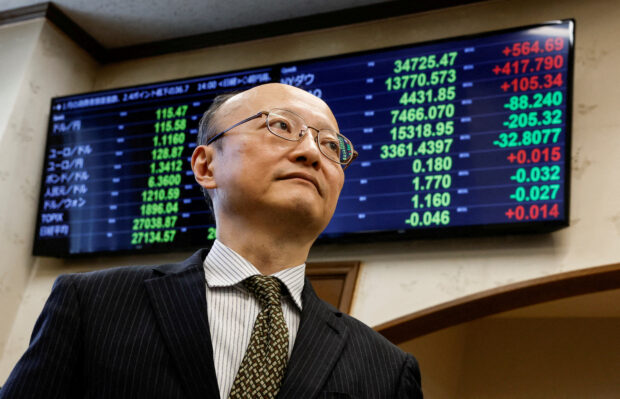Japan’s top FX diplomat: Inflation, wage gains overshooting expectations

Japan’s vice minister of finance for international affairs, Masato Kanda, during an interview with Reuters at the Finance Ministry in Tokyo, Japan Jan 31, 2022. REUTERS/Issei Kato/File photo
TOKYO -Japan’s top currency diplomat Masato Kanda said on Monday recent inflation and wage rises were overshooting expectations, suggesting companies were changing practices that had been based on the assumption prices won’t rise much.
The central bank is likely to revise up its inflation forecasts at its two-day policy meeting ending on Friday, Kanda told reporters, adding that he was not in a position to comment on specific monetary policy.
“It’s become a shared view at home and abroad that changes are seen in Japan’s corporate price- and wage-setting behaviour,” Kanda told reporters.
“If you add up data available so far, we’ll probably see an upgrade in the BOJ’s (inflation) forecasts,” he said.
READ: Japan’s inflation re-accelerates in June, stays above BOJ target
Kanda, vice finance minister for international affairs, made the remarks amid simmering market speculation that creeping inflation and robust wage growth will prod the Bank of Japan (BOJ) to tweak its yield control policy this week.
On Friday, Kanda told Reuters that “various expectations and speculations are spreading about the possibility of some kind of tweak to monetary policy.”
Kanda, who oversees Japan’s currency policy, also warned on Friday Tokyo won’t rule out any option in addressing any excessive volatility in the yen, which has recently renewed its declines against other currencies.
Sources have told Reuters the BOJ is leaning toward keeping its yield control policy steady this week, though there is no consensus within the bank.
READ: BOJ policymaker calls for keeping low rates, focus on wages
While the board is likely to revise up its core consumer inflation forecast for the year that began in April, those for fiscal 2024 and 2025 will likely remain largely unchanged from current projections, they said.
BOJ Governor Kazuo Ueda has said the central bank is focusing on whether recent inflation and wage growth will be sustained next year, and backed more by domestic demand, in deciding whether to tweak yield curve control.